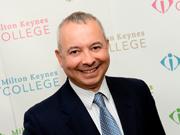Rehabilitating offenders is what FE does well

The Lord Chancellor emerged from his period of reading into his brief earlier this month. The Lord Chancellor being Michael Gove expectations were set high. As Education Secretary he had taken on what he described as ‘the blob’, the teaching establishment in other words. Not surprisingly ‘the blob’ did not like it and fought back. As Education Secretary he oversaw probably the most energetic creation of new institutions the sector has seen. His commitment to new institution building was quite heroic. Free schools have sprung up in all sorts of places (not necessarily where the need for them is highest). So too University Technical Colleges (UTCs) and the Academies programme is now established as the way for schools to go.
The idea that new entrants into a public sector marketplace will improve standards by creating new options (competition if you will) satisfies the atavistic instincts of the current Tory government. So what was Michael going to say about our prison system? He began well, praising the hard work of all those who work in or volunteer in our prison estate. He lambasted the state of too many of our creaking prisons as 1840s institutions, overcrowded and dark and dank. In these places crime itself breeds. Drugs proliferate and young offenders really do come out more criminalised than they went in. His answer seems to indicate a big sell off of old prison estate and the construction of better facilities. If this is so it is to be welcomed.
However his main focus was on getting the bureaucracy of the prisons themselves to work better to enable prisoners to learn and be incentivised to learn. He believes (and there is good evidence to support this) that education is the key to rehabilitation.
So the Lord Chancellor is right, I believe, to focus attention on enabling prisoners to access more education more of the time. His solutions to how to do this I am not so certain about. And it is not clear that he fully understand that Governors do have, to a certain extent, the mechanisms with which to do this already, though as he admits, ‘he is still learning’. Now I have to declare an interest at this point. Milton Keynes College is one of three colleges who currently provide education in our prisons. MK College works in 28 prisons mainly across the Midlands and south central belt of England. A number of them are producing some amazing results. We have established employer focussed academies to enable prisoners to establish strong links with national and local employers. We teach over 25,000 prisoners each year how to read, write, do maths, and be prepared for the real world of work and to deal with their learning difficulties. It is hard, hard work and the people who do the teaching are remarkable for their skill, patience and resilience. And Michael Gove is right. Sometimes it is a battle with some prison regimes to get prisoners into classrooms. This can and must be improved as must standards of education across the provision.
However the deep wisdom about how to do things well is in danger of being lost by an impulse to try and introduce a form of false choice, and not recognising fully how the current governance structures work.
Mr Gove suggests that Governors don’t determine who provides education in their prison – however, Governors sat on the Boards that awarded the contracts. He states they have little control over quality and few measures to hold providers to account – however, the existing regional Governance Boards do both monitor and drive quality and I can confirm, we are certainly held to account. What is key is that all Governors take up this mantle, own it and work with the existing providers to get the delivery that both provider and prison need to deliver, to offer the right routes for our offender learners.
It may be an attractive idea to allow each Governor to source their own education provision – and it certainly used to be the case that prisons contracted with their local education provider. That is how MK College started its work in prisons. Now however we have grown that experience and expertise and by bringing together our managers and practitioners on a regular basis in clusters we are beginning to develop new ways of doing things; share best practice; develop strengths and develop career pathways for our teachers and professionals. This could be put at risk if the provision of education becomes a localised and essentially non specialist offer. So for example our ability to work nationally with national employers is enhanced because we work in so many prisons. Imagine some of the employers we work with now having to work with 30 providers instead of one. It is likely to act as a major disincentive for them to engage when we desperately need more employers to so engage.
In short Michael Gove is both right and wrong. He is right to assert education is the key to rehabilitation. And he is right to embrace specialist providers to support offenders who are not ready to engage with maths, English and other formal qualification routes that prepare our offenders for the world of work. He is wrong to believe creating a vast pool of providers from a range of backgrounds is the right approach. Competition works best when accompanied by strong collaboration that enables the best ideas to be shared. So Lord Chancellor let’s talk.
Nick Isles is deputy principal and chief executive of Milton Keynes College












Responses